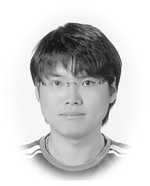 Something happened when I went to dinner with reporters. Concerning my question of where they wanted to eat, one of them said, “Let’s go to ‘Mipi’” At that time, because we had to go near Jungmoon, and they all knew the fact, I had to think that there was a store called ‘Mipi” around Jungmoon. Listening to the reporters’ explanations, I could finally understand that ‘Mipi’ was an abbreviated word of ‘Mr. Pizza.’ The moment I heard that, I smiled a bitter smile. I actually felt the gap of our ages, but what made me more surprised was the extravagance of the abbreviation, which was without common sense. Frankly speaking, I think that it is a nonsensical abbreviated word beyond convenience.
Something happened when I went to dinner with reporters. Concerning my question of where they wanted to eat, one of them said, “Let’s go to ‘Mipi’” At that time, because we had to go near Jungmoon, and they all knew the fact, I had to think that there was a store called ‘Mipi” around Jungmoon. Listening to the reporters’ explanations, I could finally understand that ‘Mipi’ was an abbreviated word of ‘Mr. Pizza.’ The moment I heard that, I smiled a bitter smile. I actually felt the gap of our ages, but what made me more surprised was the extravagance of the abbreviation, which was without common sense. Frankly speaking, I think that it is a nonsensical abbreviated word beyond convenience. I’m in my late 20’s, and I also had to listen that we destroyed our language from our elders. I still remember that I used to use incorrect words such as ‘Bangga,’ which disregards orthography, or ‘Hairu,’ which combines Korean and English, in the 90’s and early 2000 when internet chat was popular. Of course, in those days, such a phenomenon was treated as a social issue, too. However, at present, too many words which are destroying our language and which are difficult to understand, even to me, are rampant. ‘Heum-jom-mu,’ ‘ji-mot-mi’ and ‘deud-bo-jap’ are the representative examples, and those are really difficult to understand without explanations. To tell the truth, I really cannot understand that those words are surely necessary and why they are needed.
In English, abbreviations and acronyms such as FTA, IMF and CEO are more common in our country. They are used for convenience, but they are different from the ones Korean youths are using. The English ones are simpler, while the Korea ones are ways to show how much they are sensitive to trends and fashion. Some people who speak those words - as I mentioned, most of them are nonsensical abbreviated words ? have an illusion that using those words more is something fashionable.
King Sejong is the favorite person of my nephew. Also, my nephew is not the only person who respects him. To tell the truth, who doesn’t? My nephew says because King Sejong invented Hangeul, the Korean alphabet, he likes King Sejong. Don’t you? If you like King Sejong for the same reason as my nephew, are you really respecting him?
Mipi: 미피 / Bangga: 방가 / Hairu: 하이루 /
Heum-jom-mu: 흠좀무 / Ji-mot-mi: 지못미 /
Deud-bo-jap: 듣보잡


 All
All Column
Column






 황유진
황유진











